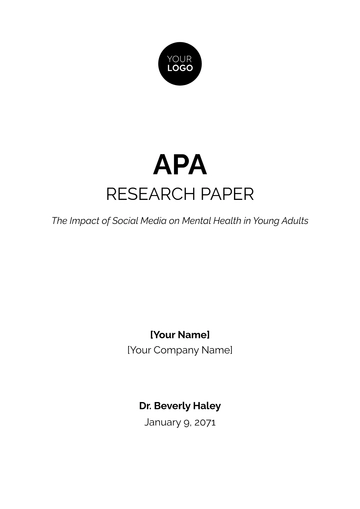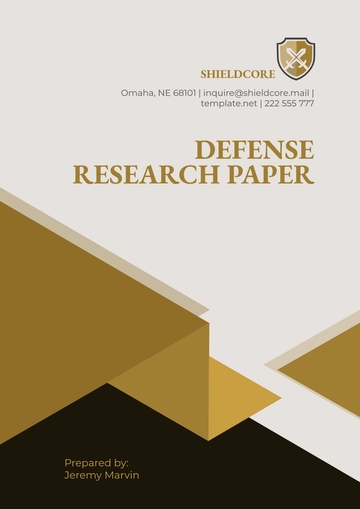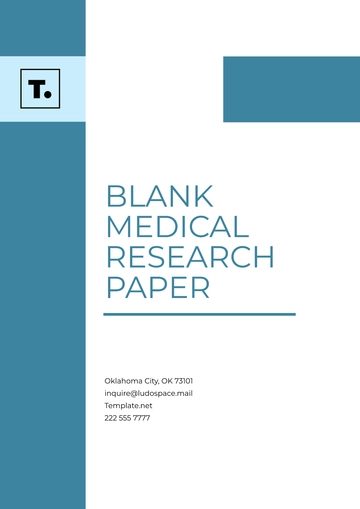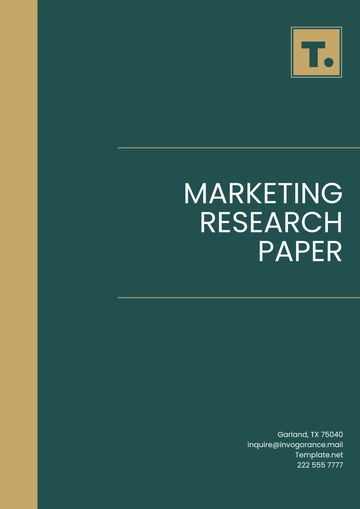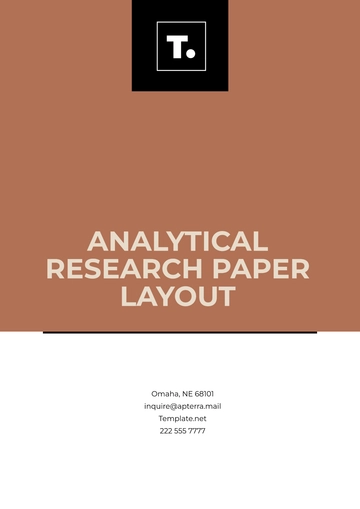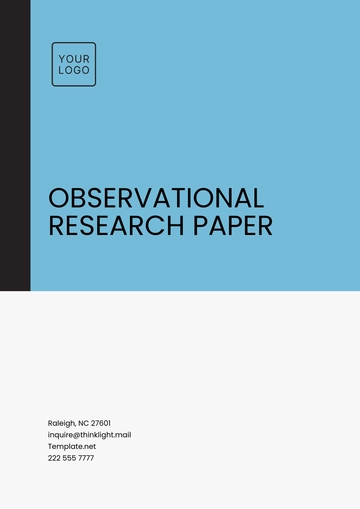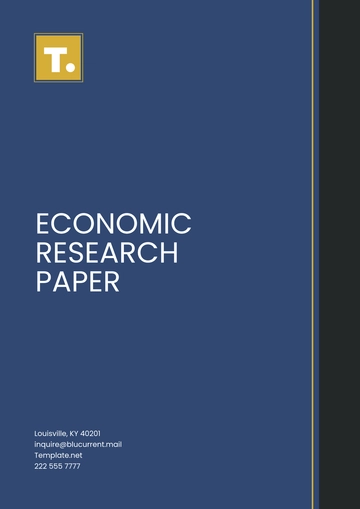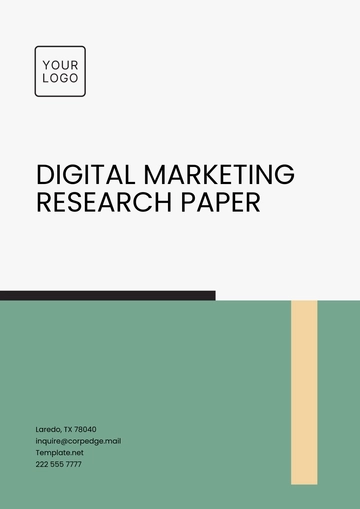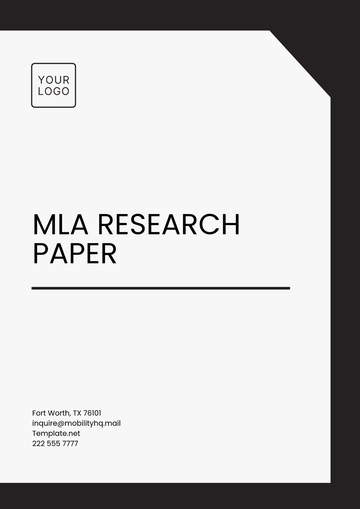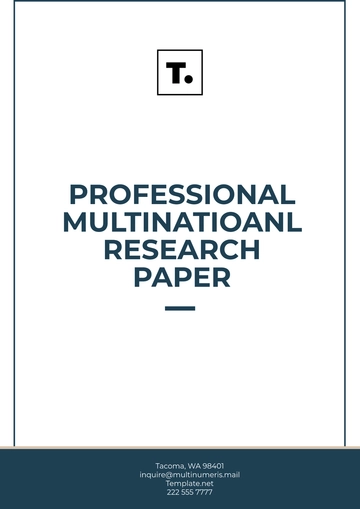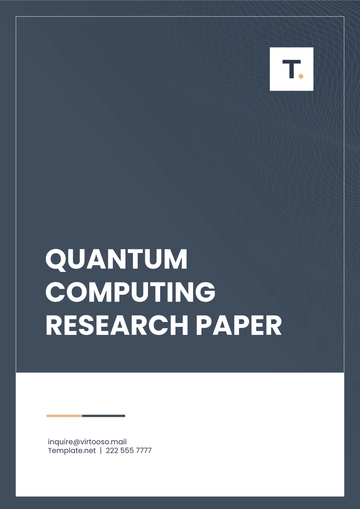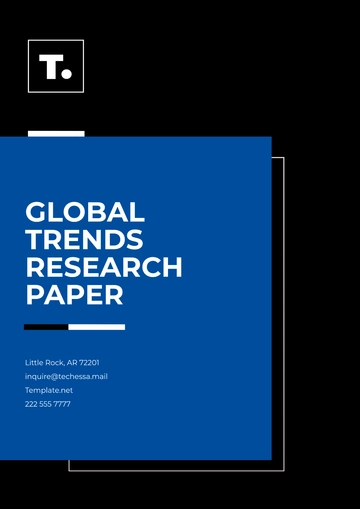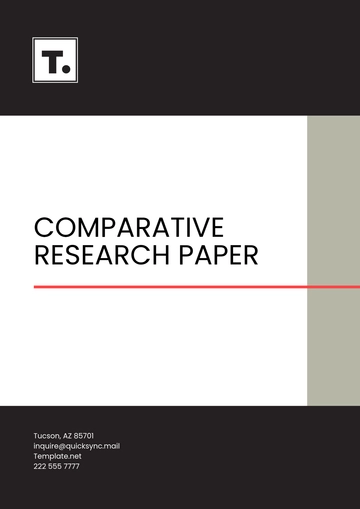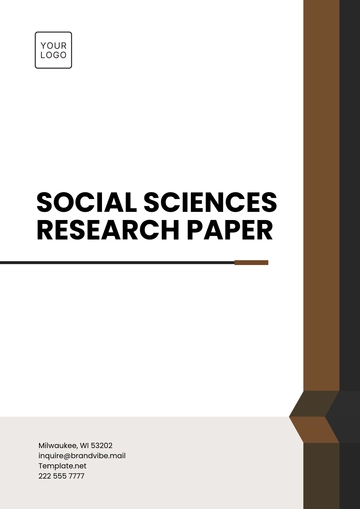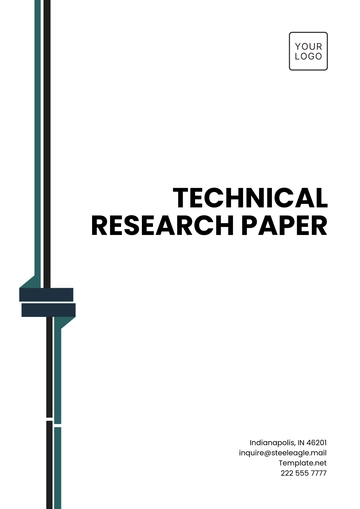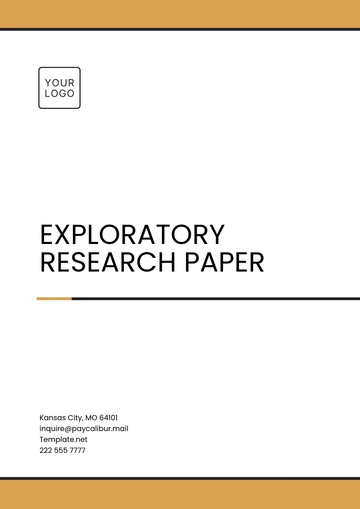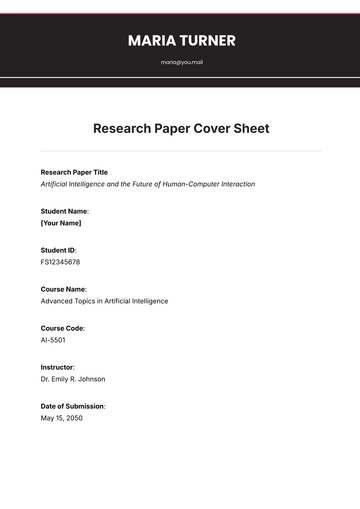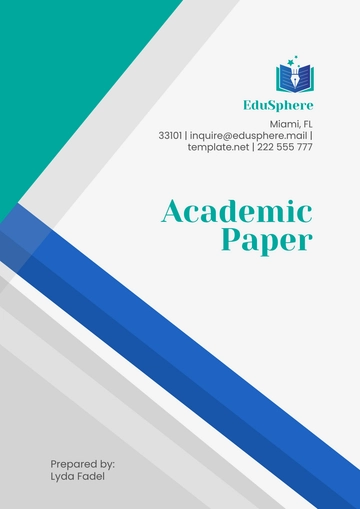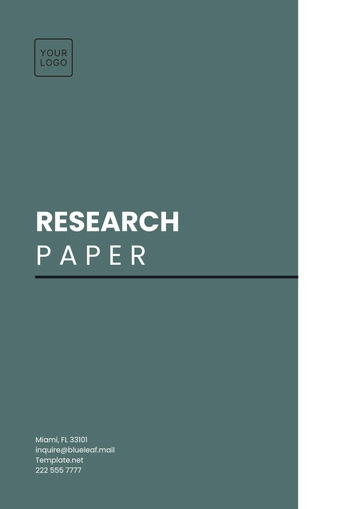Free APA Research Paper

Prepared by: [YOUR NAME]
Institutional Affiliation: [YOUR COMPANY NAME]
Email: [YOUR EMAIL]
Date: August 22, 2050
Abstract
This paper investigates emerging trends and innovations in professional research practices. It examines recent advancements and their implications for research efficiency and effectiveness. The findings aim to provide insights into how these innovations can enhance research methodologies in various fields.
I. Introduction
Professional research is constantly evolving, driven by technological advancements and shifts in research paradigms. This paper explores the latest innovations in research practices, focusing on how these developments impact data collection, analysis, and dissemination. The goal is to identify key trends that shape the future of professional research.
II. Method
Research Design: This study employs a mixed-methods approach, combining quantitative and qualitative data to provide a comprehensive analysis of recent innovations in research practices.
Participants: The research includes data from surveys and interviews conducted with 100 professionals across various industries.
Procedures: Data was collected through online surveys and in-depth interviews conducted between June 1, 2050, and August 15, 2050.
III. Results
Findings: The study revealed several key innovations in professional research, including advancements in data analytics, the integration of artificial intelligence, and improved methodologies for data visualization.
Table 1: Key Innovations in Research Practices
Innovation | Description | Industry Impact | Adoption Rate | Challenges |
|---|---|---|---|---|
Data Analytics | Advanced algorithms for data analysis | Increased efficiency | 80% | High cost |
Artificial Intelligence | AI tools for data processing and insights | Enhanced accuracy | 60% | Technical complexity |
Data Visualization | New tools for visualizing research data | Improved clarity | 75% | Learning curve |
Cloud Computing | Cloud platforms for data storage and access | Greater accessibility | 85% | Security concerns |
Automation Tools | Automated systems for routine tasks | Time-saving | 70% | Integration issues |
Collaborative Platforms | Tools for remote research collaboration | Facilitated teamwork | 65% | Coordination challenges |
Blockchain for Data Integrity | Ensuring data integrity through blockchain | Enhanced security | 55% | Implementation costs |
Advanced Statistical Models | New statistical models for complex data | Better insights | 60% | Requires expertise |
Virtual Reality for Research | Using VR for Immersive Data Analysis | Innovative approaches | 45% | High cost and equipment |
IV. Discussion
The integration of these innovations into professional research practices offers significant benefits, including improved data analysis, enhanced accuracy, and greater efficiency. However, challenges such as high costs, technical complexity, and security concerns must be addressed. Future research should focus on overcoming these obstacles and further exploring the potential of emerging technologies in research.
V. References
[YOUR COMPANY NAME]. (2050). Innovations in Data Analytics. [YOUR COMPANY WEBSITE]
Mason Clark. (2050). Artificial Intelligence and Data Processing. Journal of Professional Research, 45(2), 123-134.
Olivia Garcia. (2050). Data Visualization Techniques for the Modern Researcher. Research Insights, 12(4), 56-67.
Ethan Miller. (2050). The Role of Cloud Computing in Research. Tech Review, 22(3), 89-101.
Sofia Martinez. (2050). Blockchain Technology in Research. Journal of Data Integrity, 18(1), 14-26.
- 100% Customizable, free editor
- Access 1 Million+ Templates, photo’s & graphics
- Download or share as a template
- Click and replace photos, graphics, text, backgrounds
- Resize, crop, AI write & more
- Access advanced editor
Template.net offers a customizable and editable APA Research Paper Template designed to streamline your writing process. Perfect for students and professionals, this template is easy to use and formatted to meet APA guidelines. With Template.net's AI Editor Tool, quickly adjust content and structure, ensuring a professional and polished paper every time.



